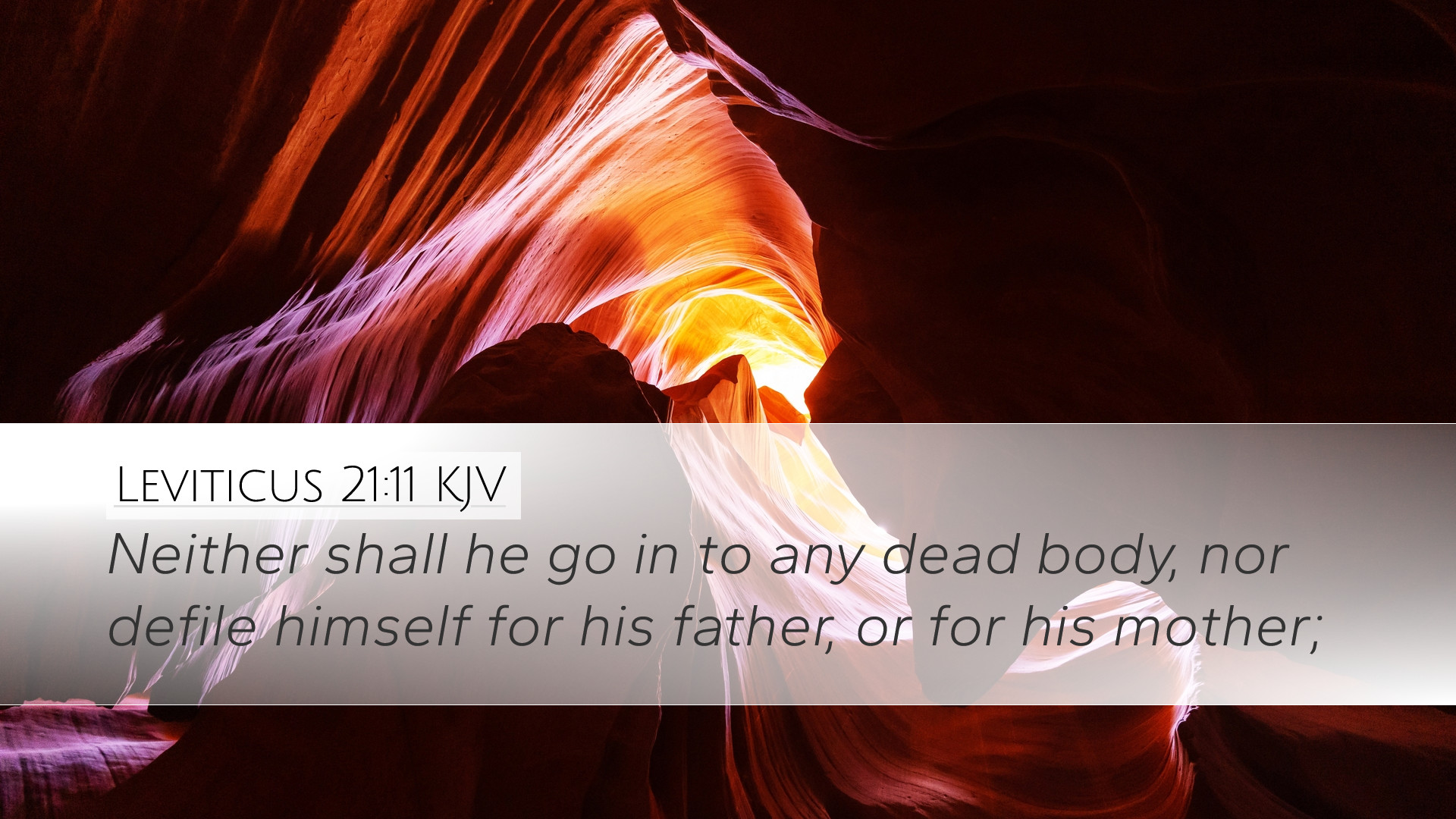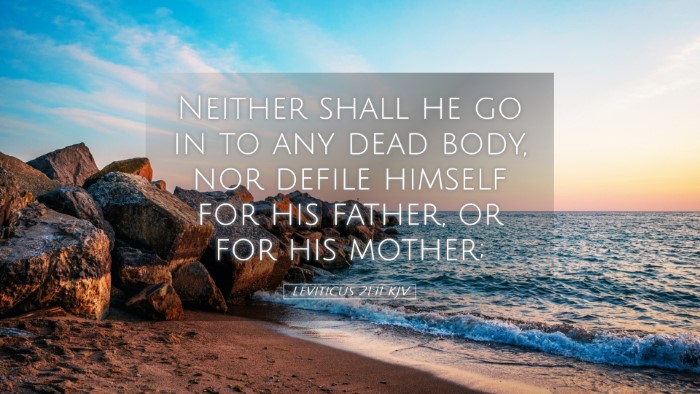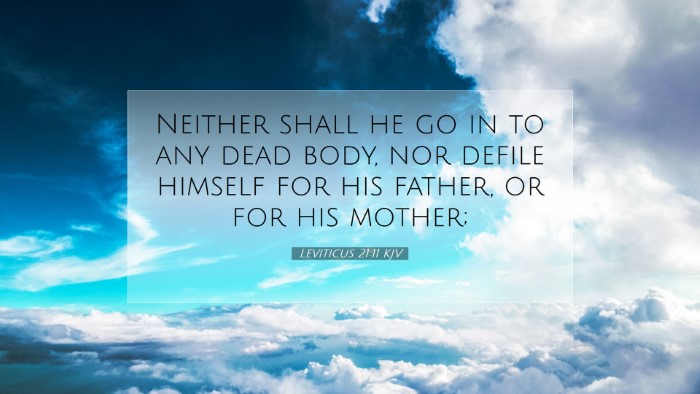Commentary on Leviticus 21:11
Verse: "Neither shall he go in to any dead body, nor defile himself for his father, or for his mother."
Introduction
The verse in Leviticus 21:11 serves as a part of the laws regarding the conduct of priests in Israel. This chapter outlines the qualifications and duties of priests, emphasizing their distinct role in worship and service to God. Understanding this verse requires a deep exploration of the cultural, ceremonial, and theological significance encapsulated within the Mosaic Law.
Cultural Context
In the ancient Israelite culture, priests held a unique position as mediators between God and the people. Their purity was essential not only for their own spiritual standing but also for the community's relationship with God. The prohibitions placed upon them, including refraining from contact with dead bodies, highlight the importance of holiness and separation from death, which symbolizes sin and the corruption it brings.
Matthew Henry's Insights
Matthew Henry emphasizes the priest's calling to be distinct from the common people. He suggests that the laws were given to maintain their holiness, enabling them to fulfill their duties effectively. Henry notes that while mourning is a natural human response, the priest had a higher calling that required him to prioritize his sacred responsibilities over familial obligations. The priest must remain ceremonially clean to approach God and conduct rituals on behalf of others.
Albert Barnes' Observations
Albert Barnes interprets the verse as an indication of the priest's dedication to their sacred office. He points out that defilement could come from coming into contact with death, which was seen as a state of unholiness. Barnes elucidates that while it is honorable to grieve for loved ones, the priest's role demanded a unique focus on God’s service. He underscores that the holiness demanded of the priest is a reflection of the holiness of God himself, positioning the priest as a representative of divine purity.
Adam Clarke's Commentary
Adam Clarke adds a deeper exploration into the phrase "nor defile himself for his father, or for his mother." Clarke suggests that this provision emphasizes the sanctity of the priest's office, allowing no exceptions for personal feelings or familial ties. He posits that the temporal nature of human relationships must not supersede the eternal obligations to God. Clarke emphasizes that in spiritual matters, the priest must be unwaveringly devoted, prioritizing the sacred above the secular, which aligns with broader themes found throughout the Book of Leviticus.
Theological Implications
The prohibition against defilement due to familial connections leads to a wider exploration of holiness in the New Testament. The call to holiness is echoed in the ministry of Jesus Christ, who redefined relationships and re-prioritized commitments to align with the purposes of God’s kingdom. For pastors and theologians, this verse serves as a reminder of the seriousness with which God views holiness and service.
Application for Pastors and Theologians
- Commitment to Holiness: Just as the priest was called to a higher standard, pastors today must prioritize their relationships with God over personal comforts or cultural expectations.
- Understanding Sacrifice: The verse invites reflection on what it means to make sacrifices in service of God. It challenges leaders to evaluate their commitments and consider what must be laid aside for the sake of holiness.
- Defining Identity: For modern believers, understanding our identity in Christ may involve reassessing relationships and duties in light of their effect on our spiritual lives.
Conclusion
Leviticus 21:11 stands as a powerful reminder of the distinct calling placed upon those who serve God. The commentary from prominent theologians illustrates the depth of commitment required and the profound implications of this standard. As pastors, students, and scholars reflect on this verse, it is essential to understand the balance between personal relationships and theological responsibilities. In honoring the call to holiness, we embrace the challenges and joys of divine service, shaping our ministry in accordance with God’s purposes.


